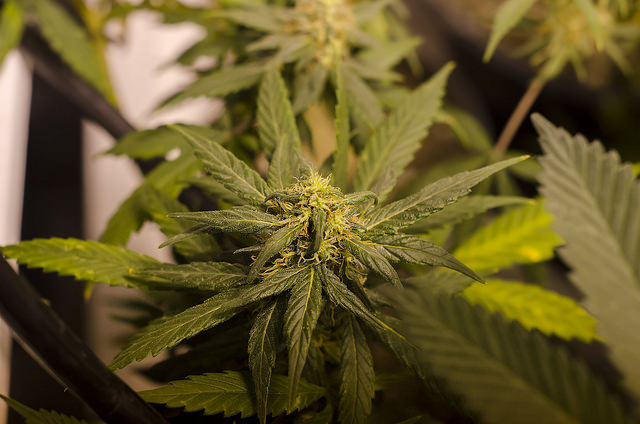Recreational marijuana may fund public education
Marijuana regulation in Arizona could assist K-12 funding
The Campaign to Regulate Marijuana Like Alcohol is collecting signatures to tax sales of marijuana to fund public education and the Arizona Dept. of Health Services.
October 4, 2015
The Campaign to Regulate Marijuana Like Alcohol, sponsored by a national advocacy group called the Marijuana Policy Project, wants to “sensibly” tax the retail sales of recreational marijuana in Arizona. According to the campaign website, regulatemarijuanainarizona.org, the campaign will raise millions and the majority of the tax revenue will go toward funding public education in Arizona.
The group has gathered over 75,000 signatures as of Sept. 17 and hopes to promote legitimate marijuana businesses that will create jobs and help law enforcement officials focus on serious crimes.
“We’ve got to overcome a stigma that marijuana is harmful and bad for you,” Arizona Marijuana Policy Project head Carlos Alfaro said. “It is objectively less harmful than alcohol and money would be taken out of the hands of drug dealers, gang members, and cartels.”
According to an Aug. 31 report from the Grand Canyon Institute, by 2019 the tax provision of this bill would generate $72 million:$29 million each to K-12 education and funding all-day Kindergarten with an additional $14 million to the Department of Health Services.
In a Aug. 19 news conference, the Campaign to Regulate Marijuana Like Alcohol estimated that if passed by Arizona voters the initiative would “conservatively” raise 40 million in revenue for public schools through a 15 percent tax on sales.
After major budget cuts, Arizona’s K-12 had to cut Kindergarten Programs to four half-days a week.
Bright Horizons Phoenix pre-school teacher Hannah Preston is a supporter of the campaign.
“All-day kindergarten is good for children because they learn and will be ready to start school,” Preston said.
Alfaro said the group needs to collect a total of 150,000 signatures in order to get the bill in front of voters, although they want 230,000. Alfaro indicated that the group has 75,000 signatures at present.


